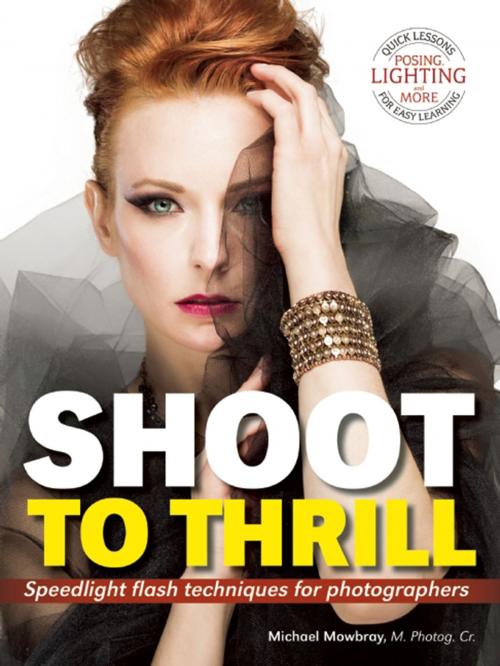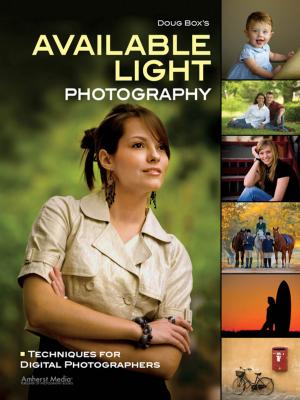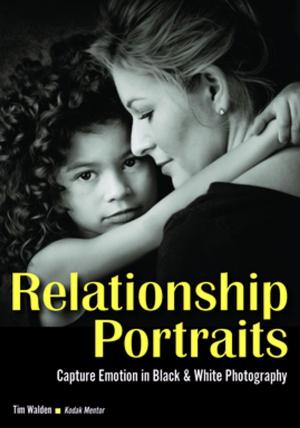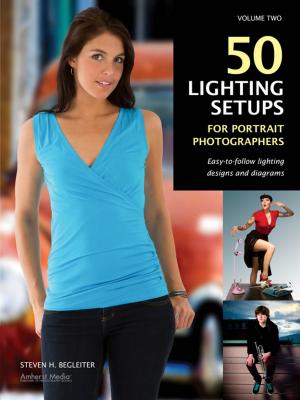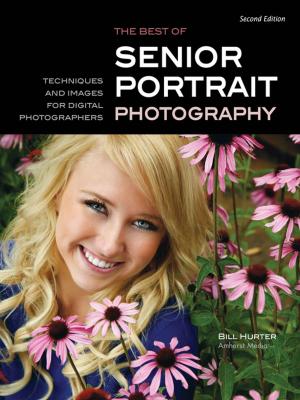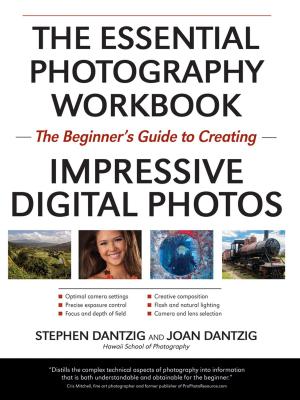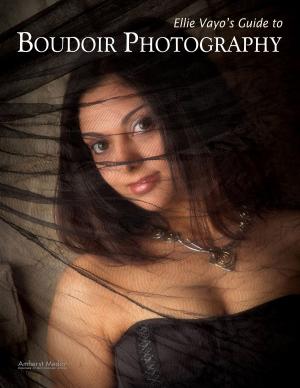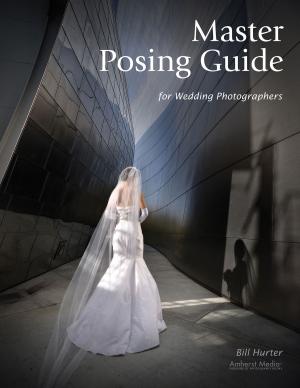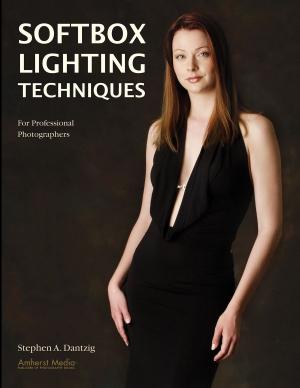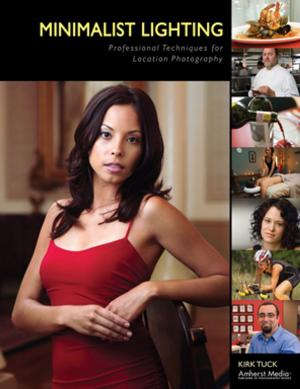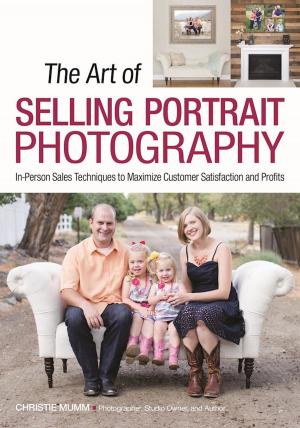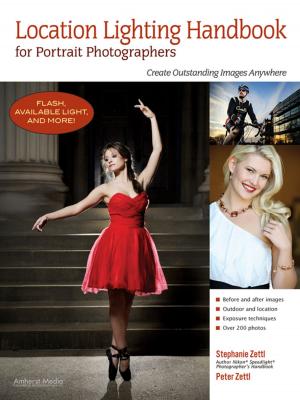Shoot to Thrill
Speedlight Flash Techniques for Photographers
Nonfiction, Art & Architecture, Photography, Equipment & Techniques, Techniques| Author: | Michael Mowbray | ISBN: | 9781608956920 |
| Publisher: | Amherst Media | Publication: | May 13, 2014 |
| Imprint: | Amherst Media | Language: | English |
| Author: | Michael Mowbray |
| ISBN: | 9781608956920 |
| Publisher: | Amherst Media |
| Publication: | May 13, 2014 |
| Imprint: | Amherst Media |
| Language: | English |
For decades, professional photographers have been using large, expensive studio lighting setups for their shoots. While powerful and effective, they have certain limitations. A new generation of photographers has embraced speedlights, battery powered flashes that can mount on your camera or be triggered remotely. After years of using studio lights, Michael Mowbray switched over to speedlights. He started gradually but soon realized he could shoot nearly everything with speedlights. Specializing in wedding and senior portraits, Mowbray found freedom and renewed creativity with these lights. As he states in the introduction, he no longer chases light, he creates it.
The book begins by outlining the core concepts for using speedlights as a primary light source. Knowing how light works allows you to control it. The same goes for your camera. Understanding how the flash and the camera interact using the camera’s metering system is the center of Mowray’s speedlight technique. It’s also important to understand how your camera and flashes communicate while they aren’t attached to one another. The ability to have remote flashes tucked into unique places for a shoot opens up the lighting options available to you. In addition to wedding and senior portrait photography, Mowbray works in fashion, commercial and family photography. The versatility of speedlights allows a professional photographer to work in many genres.
After covering the core concepts, the book presents 60 of Mowbray’s world class images. Each photo is accompanied by a list of the equipment used for capturing the shot, alternate related images and a lighting diagram. One of the major advantages of a speedlight portrait system is that it allows you create the light you want virtually anywhere. Interesting unlit nooks magically become great photo settings. A common theme across much of Mowbray’s location work is using speedlights to create light and contrast where none currently exist. A shoot may require that you work at less than ideal times of the day. It is possible create your own sunrise, shoot at night when there is little natural light, or make the daytime look like night. This flexibility opens up the number and type of clients your business can handle. Attention to detail with the placement of lights can be the difference between a run-of-the-mill portrait and a striking, award winning image. Mowbray provides great detail on what went into making each of his photographs.
Don’t get stuck in a rut using the same modifiers and the same lighting over and over again. It may work fine but it will ultimately limit you. Clients like choices, especially when they are investing a lot of money. Choices can often lead to bigger sales as clients feel the need to order more of the varied looks and styles. Working in edgier lighting styles and clothing combinations, unique backgrounds or locations can expand the variety of shots you get from a session. Whether going for that classic studio look or crafting something very dramatic and modern, speedlights give you the ability to improvise and expand your techniques.
While Mowbray’s main focus is the power and flexibility of speedlights, he also provides great tips for composition and location scouting. Also necessary is the ability to improvise on the spot if your planned location doesn’t work out, like his rained out plans for an outdoor bridal shoot. While creative use of speedlights gives a lot of control over the image created, there are some instances where digital postproduction adds something extra that really makes the photo pop. Mowbray gives a number of examples where editing helped make the final image exactly what he and the client were looking for.
Containing lots of images, diagrams, and detailed text, this book provides readers with a thorough understanding of the benefits of shooting with speedlights.
The book begins by outlining the core concepts for using speedlights as a primary light source. Knowing how light works allows you to control it. The same goes for your camera. Understanding how the flash and the camera interact using the camera’s metering system is the center of Mowray’s speedlight technique. It’s also important to understand how your camera and flashes communicate while they aren’t attached to one another. The ability to have remote flashes tucked into unique places for a shoot opens up the lighting options available to you. In addition to wedding and senior portrait photography, Mowbray works in fashion, commercial and family photography. The versatility of speedlights allows a professional photographer to work in many genres.
After covering the core concepts, the book presents 60 of Mowbray’s world class images. Each photo is accompanied by a list of the equipment used for capturing the shot, alternate related images and a lighting diagram. One of the major advantages of a speedlight portrait system is that it allows you create the light you want virtually anywhere. Interesting unlit nooks magically become great photo settings. A common theme across much of Mowbray’s location work is using speedlights to create light and contrast where none currently exist. A shoot may require that you work at less than ideal times of the day. It is possible create your own sunrise, shoot at night when there is little natural light, or make the daytime look like night. This flexibility opens up the number and type of clients your business can handle. Attention to detail with the placement of lights can be the difference between a run-of-the-mill portrait and a striking, award winning image. Mowbray provides great detail on what went into making each of his photographs.
Don’t get stuck in a rut using the same modifiers and the same lighting over and over again. It may work fine but it will ultimately limit you. Clients like choices, especially when they are investing a lot of money. Choices can often lead to bigger sales as clients feel the need to order more of the varied looks and styles. Working in edgier lighting styles and clothing combinations, unique backgrounds or locations can expand the variety of shots you get from a session. Whether going for that classic studio look or crafting something very dramatic and modern, speedlights give you the ability to improvise and expand your techniques.
While Mowbray’s main focus is the power and flexibility of speedlights, he also provides great tips for composition and location scouting. Also necessary is the ability to improvise on the spot if your planned location doesn’t work out, like his rained out plans for an outdoor bridal shoot. While creative use of speedlights gives a lot of control over the image created, there are some instances where digital postproduction adds something extra that really makes the photo pop. Mowbray gives a number of examples where editing helped make the final image exactly what he and the client were looking for.
Containing lots of images, diagrams, and detailed text, this book provides readers with a thorough understanding of the benefits of shooting with speedlights.
For decades, professional photographers have been using large, expensive studio lighting setups for their shoots. While powerful and effective, they have certain limitations. A new generation of photographers has embraced speedlights, battery powered flashes that can mount on your camera or be triggered remotely. After years of using studio lights, Michael Mowbray switched over to speedlights. He started gradually but soon realized he could shoot nearly everything with speedlights. Specializing in wedding and senior portraits, Mowbray found freedom and renewed creativity with these lights. As he states in the introduction, he no longer chases light, he creates it.
The book begins by outlining the core concepts for using speedlights as a primary light source. Knowing how light works allows you to control it. The same goes for your camera. Understanding how the flash and the camera interact using the camera’s metering system is the center of Mowray’s speedlight technique. It’s also important to understand how your camera and flashes communicate while they aren’t attached to one another. The ability to have remote flashes tucked into unique places for a shoot opens up the lighting options available to you. In addition to wedding and senior portrait photography, Mowbray works in fashion, commercial and family photography. The versatility of speedlights allows a professional photographer to work in many genres.
After covering the core concepts, the book presents 60 of Mowbray’s world class images. Each photo is accompanied by a list of the equipment used for capturing the shot, alternate related images and a lighting diagram. One of the major advantages of a speedlight portrait system is that it allows you create the light you want virtually anywhere. Interesting unlit nooks magically become great photo settings. A common theme across much of Mowbray’s location work is using speedlights to create light and contrast where none currently exist. A shoot may require that you work at less than ideal times of the day. It is possible create your own sunrise, shoot at night when there is little natural light, or make the daytime look like night. This flexibility opens up the number and type of clients your business can handle. Attention to detail with the placement of lights can be the difference between a run-of-the-mill portrait and a striking, award winning image. Mowbray provides great detail on what went into making each of his photographs.
Don’t get stuck in a rut using the same modifiers and the same lighting over and over again. It may work fine but it will ultimately limit you. Clients like choices, especially when they are investing a lot of money. Choices can often lead to bigger sales as clients feel the need to order more of the varied looks and styles. Working in edgier lighting styles and clothing combinations, unique backgrounds or locations can expand the variety of shots you get from a session. Whether going for that classic studio look or crafting something very dramatic and modern, speedlights give you the ability to improvise and expand your techniques.
While Mowbray’s main focus is the power and flexibility of speedlights, he also provides great tips for composition and location scouting. Also necessary is the ability to improvise on the spot if your planned location doesn’t work out, like his rained out plans for an outdoor bridal shoot. While creative use of speedlights gives a lot of control over the image created, there are some instances where digital postproduction adds something extra that really makes the photo pop. Mowbray gives a number of examples where editing helped make the final image exactly what he and the client were looking for.
Containing lots of images, diagrams, and detailed text, this book provides readers with a thorough understanding of the benefits of shooting with speedlights.
The book begins by outlining the core concepts for using speedlights as a primary light source. Knowing how light works allows you to control it. The same goes for your camera. Understanding how the flash and the camera interact using the camera’s metering system is the center of Mowray’s speedlight technique. It’s also important to understand how your camera and flashes communicate while they aren’t attached to one another. The ability to have remote flashes tucked into unique places for a shoot opens up the lighting options available to you. In addition to wedding and senior portrait photography, Mowbray works in fashion, commercial and family photography. The versatility of speedlights allows a professional photographer to work in many genres.
After covering the core concepts, the book presents 60 of Mowbray’s world class images. Each photo is accompanied by a list of the equipment used for capturing the shot, alternate related images and a lighting diagram. One of the major advantages of a speedlight portrait system is that it allows you create the light you want virtually anywhere. Interesting unlit nooks magically become great photo settings. A common theme across much of Mowbray’s location work is using speedlights to create light and contrast where none currently exist. A shoot may require that you work at less than ideal times of the day. It is possible create your own sunrise, shoot at night when there is little natural light, or make the daytime look like night. This flexibility opens up the number and type of clients your business can handle. Attention to detail with the placement of lights can be the difference between a run-of-the-mill portrait and a striking, award winning image. Mowbray provides great detail on what went into making each of his photographs.
Don’t get stuck in a rut using the same modifiers and the same lighting over and over again. It may work fine but it will ultimately limit you. Clients like choices, especially when they are investing a lot of money. Choices can often lead to bigger sales as clients feel the need to order more of the varied looks and styles. Working in edgier lighting styles and clothing combinations, unique backgrounds or locations can expand the variety of shots you get from a session. Whether going for that classic studio look or crafting something very dramatic and modern, speedlights give you the ability to improvise and expand your techniques.
While Mowbray’s main focus is the power and flexibility of speedlights, he also provides great tips for composition and location scouting. Also necessary is the ability to improvise on the spot if your planned location doesn’t work out, like his rained out plans for an outdoor bridal shoot. While creative use of speedlights gives a lot of control over the image created, there are some instances where digital postproduction adds something extra that really makes the photo pop. Mowbray gives a number of examples where editing helped make the final image exactly what he and the client were looking for.
Containing lots of images, diagrams, and detailed text, this book provides readers with a thorough understanding of the benefits of shooting with speedlights.
